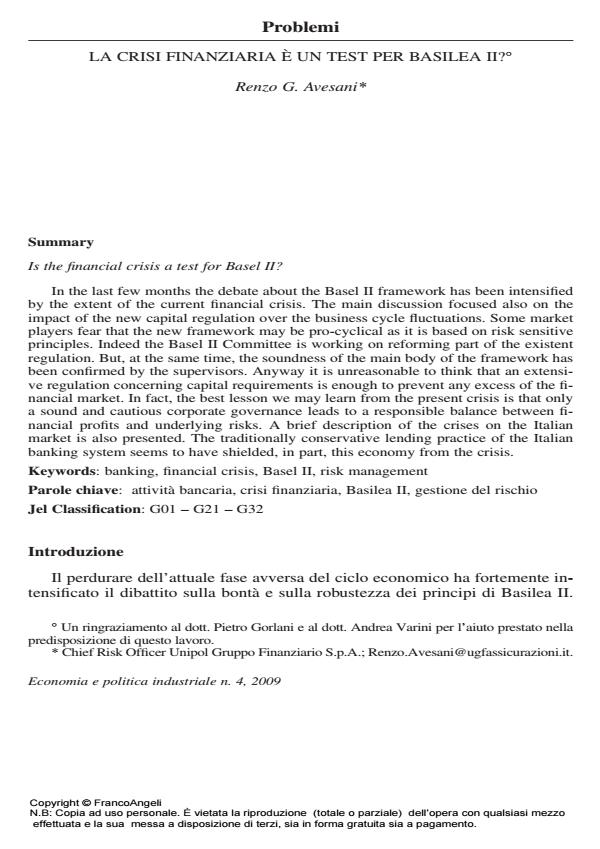La crisi finanziaria è un test per Basilea II?
Journal title ECONOMIA E POLITICA INDUSTRIALE
Author/s Renzo G. Avesani
Publishing Year 2009 Issue 2009/4
Language Italian Pages 13 P. 23-35 File size 1013 KB
DOI 10.3280/POLI2009-004003
DOI is like a bar code for intellectual property: to have more infomation
click here
Below, you can see the article first page
If you want to buy this article in PDF format, you can do it, following the instructions to buy download credits

FrancoAngeli is member of Publishers International Linking Association, Inc (PILA), a not-for-profit association which run the CrossRef service enabling links to and from online scholarly content.
Is the financial crisis a test for Basel II? - In the last few months the debate about the Basel II framework has been intensified by the extent of the current financial crisis. The main discussion focused also on the impact of the new capital regulation over the business cycle fluctuations. Some market players fear that the new framework may be pro-cyclical as it is based on risk sensitive principles. Indeed the Basel II Committee is working on reforming part of the existent regulation. But, at the same time, the soundness of the main body of the framework has been confirmed by the supervisors. Anyway it is unreasonable to think that an extensive regulation concerning capital requirements is enough to prevent any excess of the financial market. In fact, the best lesson we may learn from the present crisis is that only a sound and cautious corporate governance leads to a responsible balance between financial profits and underlying risks. A brief description of the crises on the Italian market is also presented. The traditionally conservative lending practice of the Italian banking system seems to have shielded, in part, this economy from the crisis.
Keywords: Banking, financial crisis, Basel II, risk management
Jel codes: G01, G21, G32
Renzo G. Avesani, La crisi finanziaria è un test per Basilea II? in "ECONOMIA E POLITICA INDUSTRIALE " 4/2009, pp 23-35, DOI: 10.3280/POLI2009-004003